Three-quarters of Britons (75%) describe the UK as a democratic country, but six in ten (60%) complain that they cannot freely say what they think, and a third (34%) feel they have absolutely no say when it comes to how things are run
Is democracy working in the UK?
The UK is widely considered one of the leading democracies in the world, but the YouGov Democracy study finds that the British public thinks that certain elements of what enables such a society are in danger.
Three quarters (75%) of the public describe the UK as a democratic country. This is slightly higher than when we asked the same question in 2012, when two-thirds (67%) felt the same.
However, when it comes to how well democracy is working in the UK, the percentage falls to just over six in ten (63%) results of the YouGov Democracy Study show.
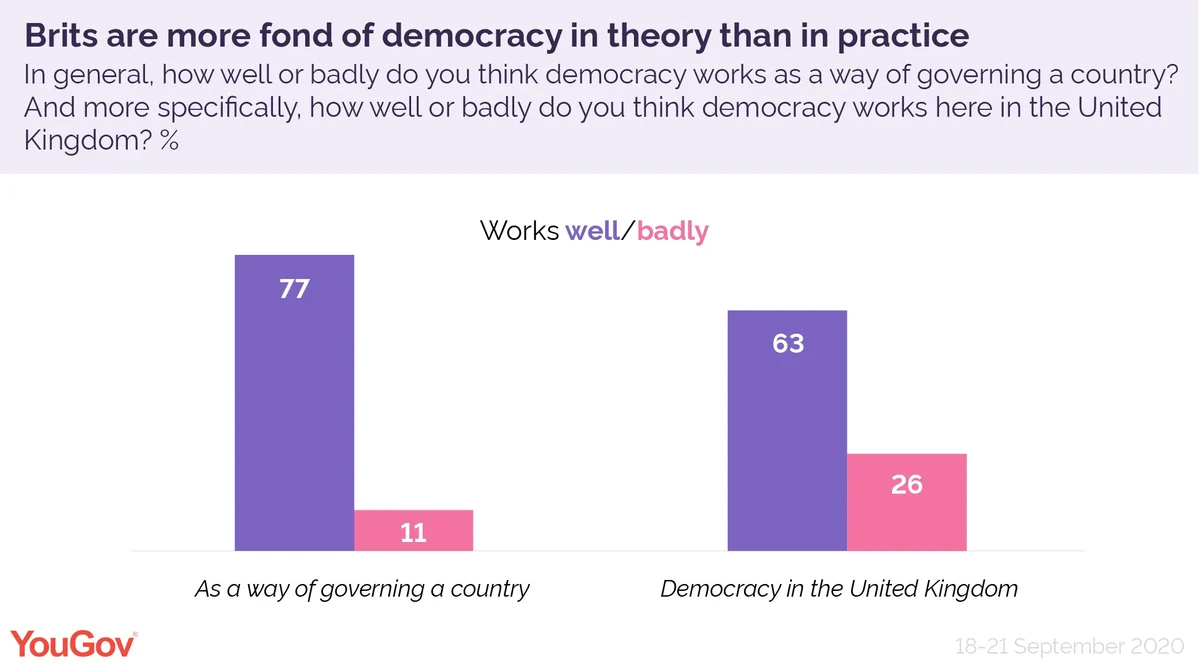
A quarter of the public (26%) think democracy works badly in the UK. There are significant age differences concerning this view: three in ten (29%) of those aged from 16 to 39 think that democracy is working badly, dropping slightly among those in their 40s and 50s to 27%, and again among those 60 and older to 21%.
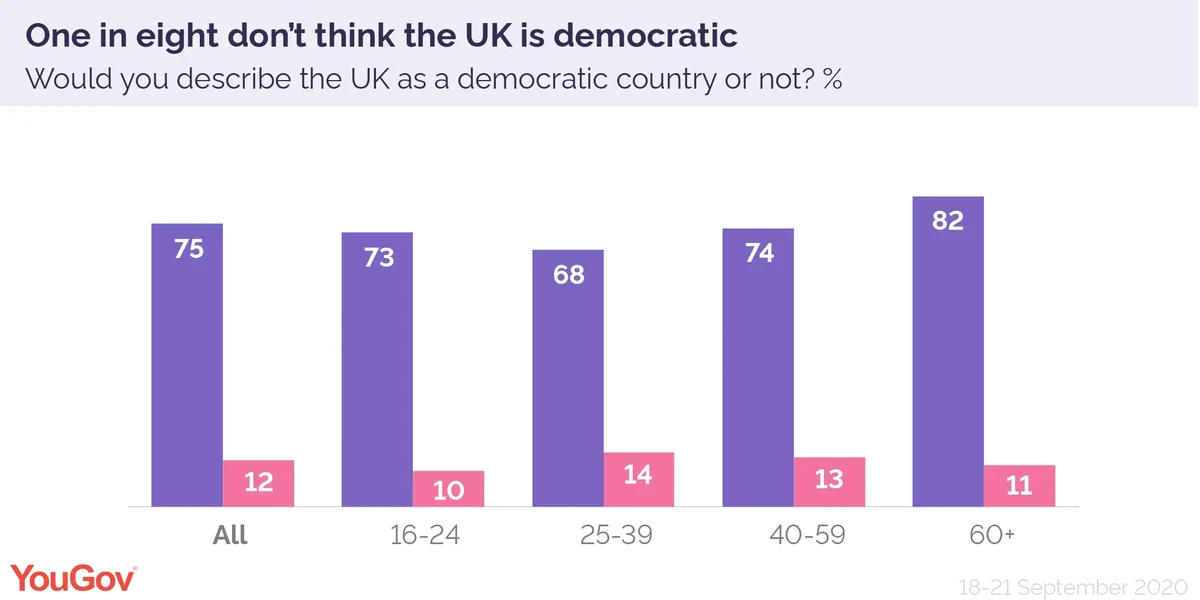
There is also a significant political split on the issue: a third (37%) of Labour and Lib Dem (35%) supporters are dissatisfied with the functioning of UK democracy, whilst this applies to just 11% of Conservative voters.
Our results also show that a third of people in Scotland (36%) and a quarter in Wales (26%) and England (24%) are dissatisfied with British democracy.
The past two decades have seen considerable shifts in political dynamics in the UK due to events such as the Scottish independence referendum in 2014, and the 2016 EU referendum. Our research has found that a third of the public (35%) consider that the UK has become less democratic during the past ten to twenty years, while a further third (34%) say there was no significant change. Just one in seven (14%) say the UK became more democratic in this period.
Interestingly, among those between 16 and 24, who would have the least first-hand experience of any changes in the past decade or two, over a quarter (27%) say they feel the country has become less democratic. Among those 60 or older, four in ten (40%) think that democracy has receded in the UK over that time.
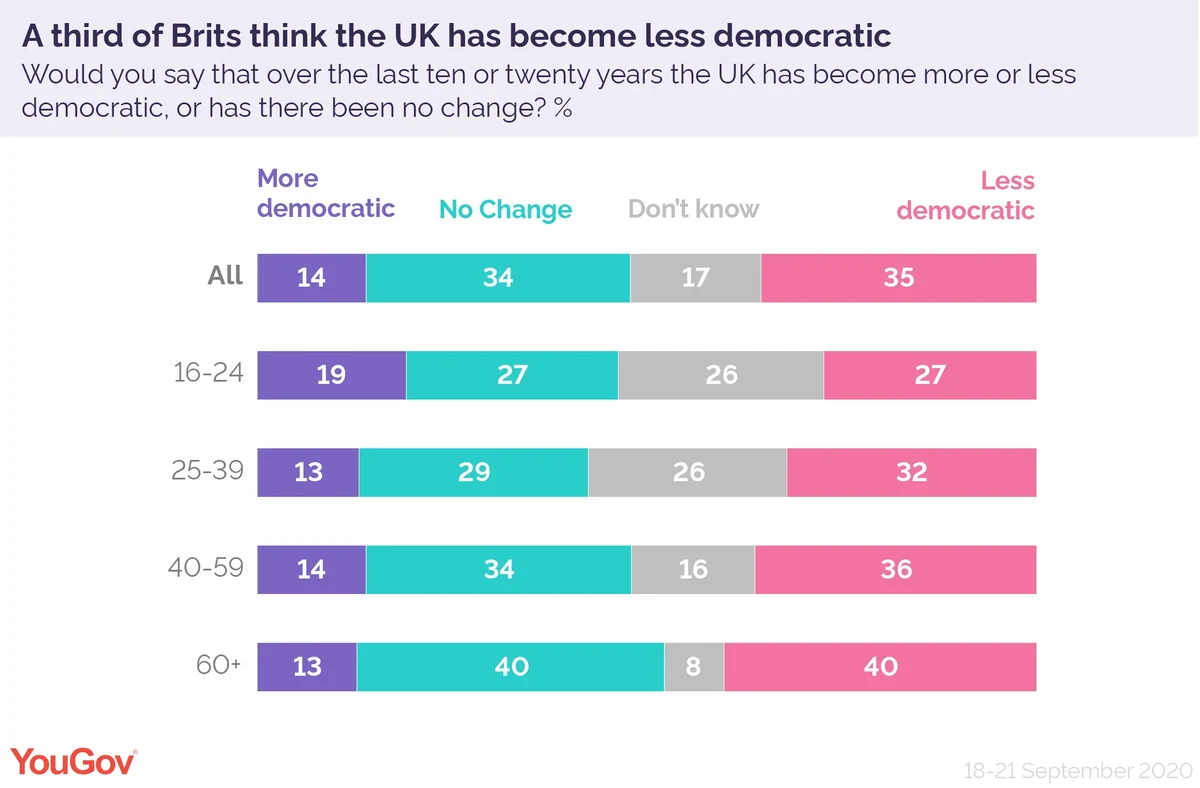
The impression that British democracy has regressed is shared by just under half of those who support Labour (46%) and Lib Dem (46%). Among Conservative voters just three in ten (28%) say the same.
Free speech
Freedom of speech, considered a key feature of a democratic society, is today a topic of fierce debate in the West, both on the left and the right of the political spectrum. YouGov can reveal that nearly six in ten (58%) Britons do not think the UK is a place where people can freely say what they think without the fear of being unfairly judged, discriminated against or prosecuted.
Among those between 16 and 24 years of age, who are often referred to by some as ‘the snowflake generation’ because they are allegedly so easy to offend, half (50%) consider the UK not to be a society where one can speak freely.
The political split of the results shows two-thirds (64%) of Conservative voters, and half of Labour (53%) and Lib Dem (49%) voters share this view.
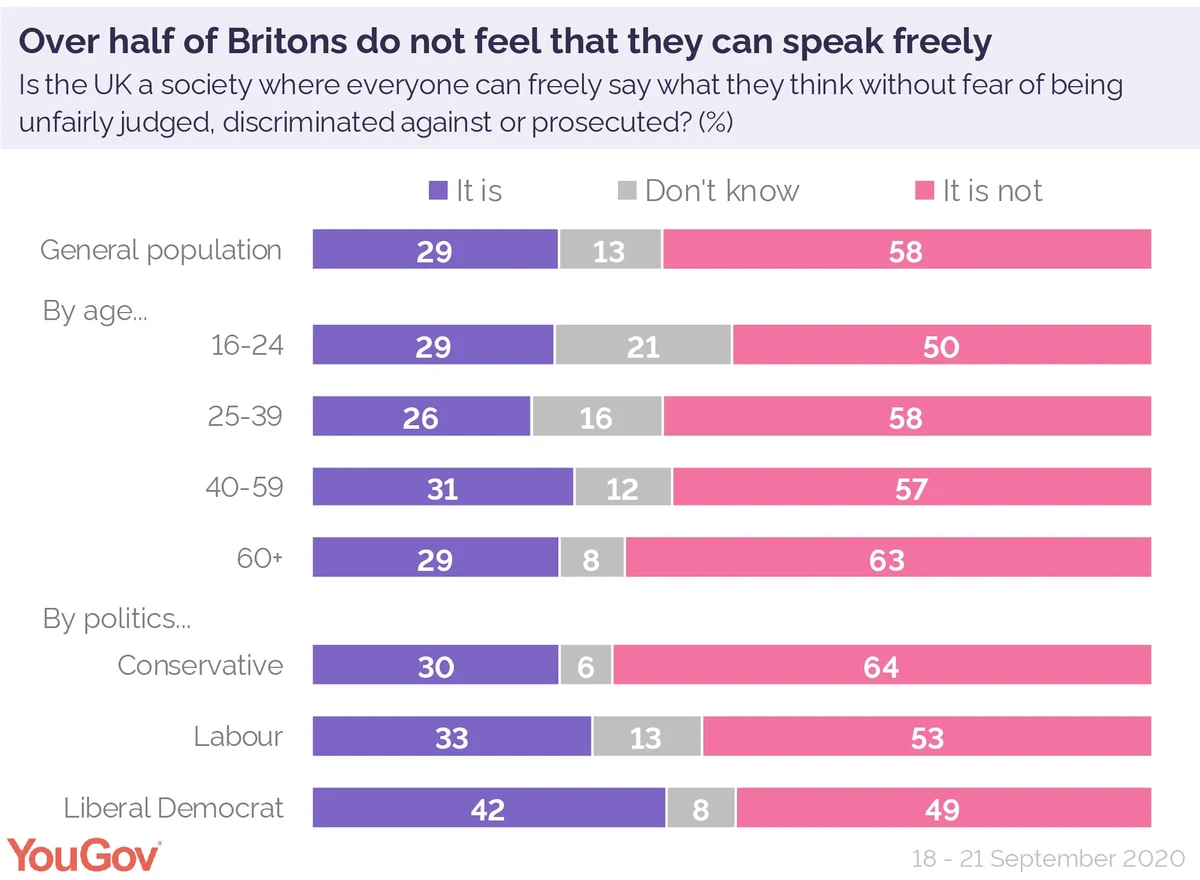
Our results show that disenchantment with British democracy is even greater when it comes to the question of being able to have a say in how things are run.
Previous YouGov research has highlighted young people feeling disenfranchised when it comes to their vote. Now the YouGov Democracy Study shows that a third (34%) of all Britons feel they have no say at all when it comes to how things are run in the UK, with a further four in ten (39%) pointing out they have only ‘a little’ say. On the other end are just under a quarter of the population (23%) who think they have adequate input.
Despite it often being said that the key decisions in the country are made by the older generation, a quarter (24%) of those aged 16 to 24 think they have some, or a lot, of input in how the UK is run, compared to just one in five (21%) of those 60 and older.
Even among those who supported the Conservative Party in the 2019 elections, four in ten (40%) think they have just ‘a little say’ and a further three in ten (29%) believe they have no say at all.
The regional breakdown of the results shows that 80% of Welsh people and 67% of those in Scotland believe they don’t have input in determining how things are done in the UK.
Despite gender inequality often being highlighted as a barrier in greater involvement for women in decision-making at higher levels across society, our research shows there isn’t much difference in the perception between men and women when it comes to how much input they have in running the country. Men (24%) are only slightly more likely than women (21%) to think they have a lot or some say in running the country, with a third of men (32%) and women (37%) pointing out they have no say.
Public are split on the impact of political parties on British democracy
In terms of the effect British political parties have on UK democracy, the public opinion is split: a third (34%) say their role is vital in upholding our democracy, whilst over a quarter (28%) consider political parties to be doing more harm than good.
The most positive disposition towards British political parties is seen in the oldest generation, where just under half (46%) think they play a vital role. A fifth of Conservatives (20%) and a third of Labour (35%) supporters think political parties do more harm than good to our democracy.
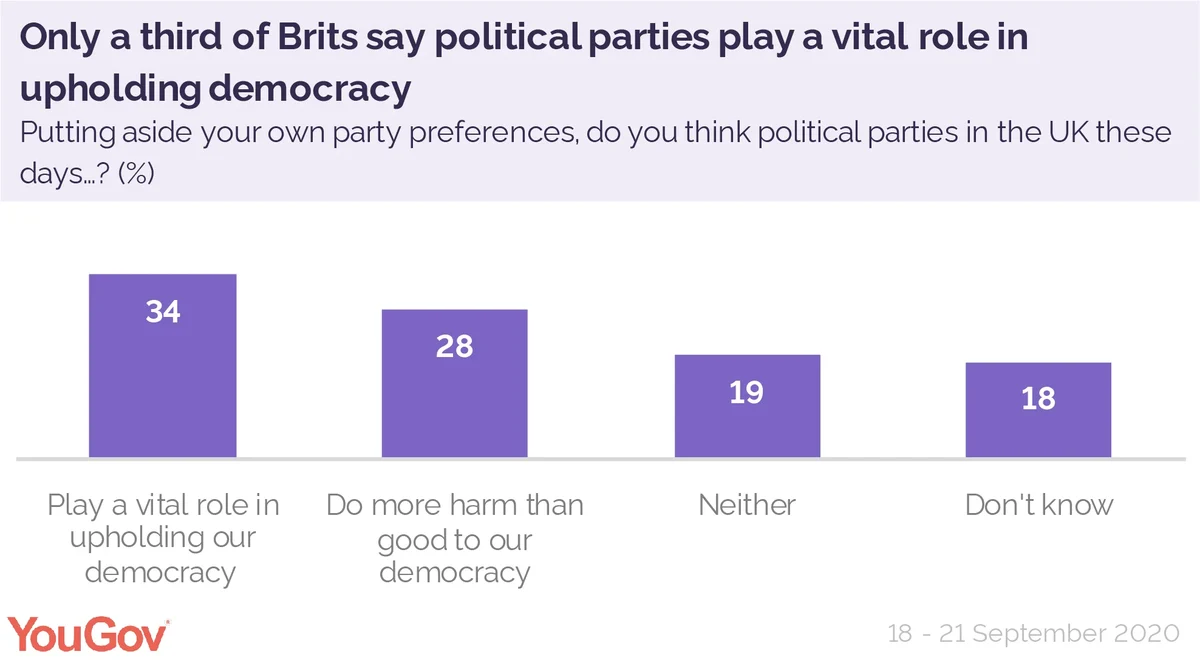
Our study also shows that a third of the British public (35%) don’t know who the MP representing their constituency is. The result is very similar to what we found in 2012 when we asked the same question (37%).
Interestingly, among those aged 16 to 24, who are widely considered to be relatively politically disengaged, nearly six in ten (59%) say they do know what their local MP is called.






